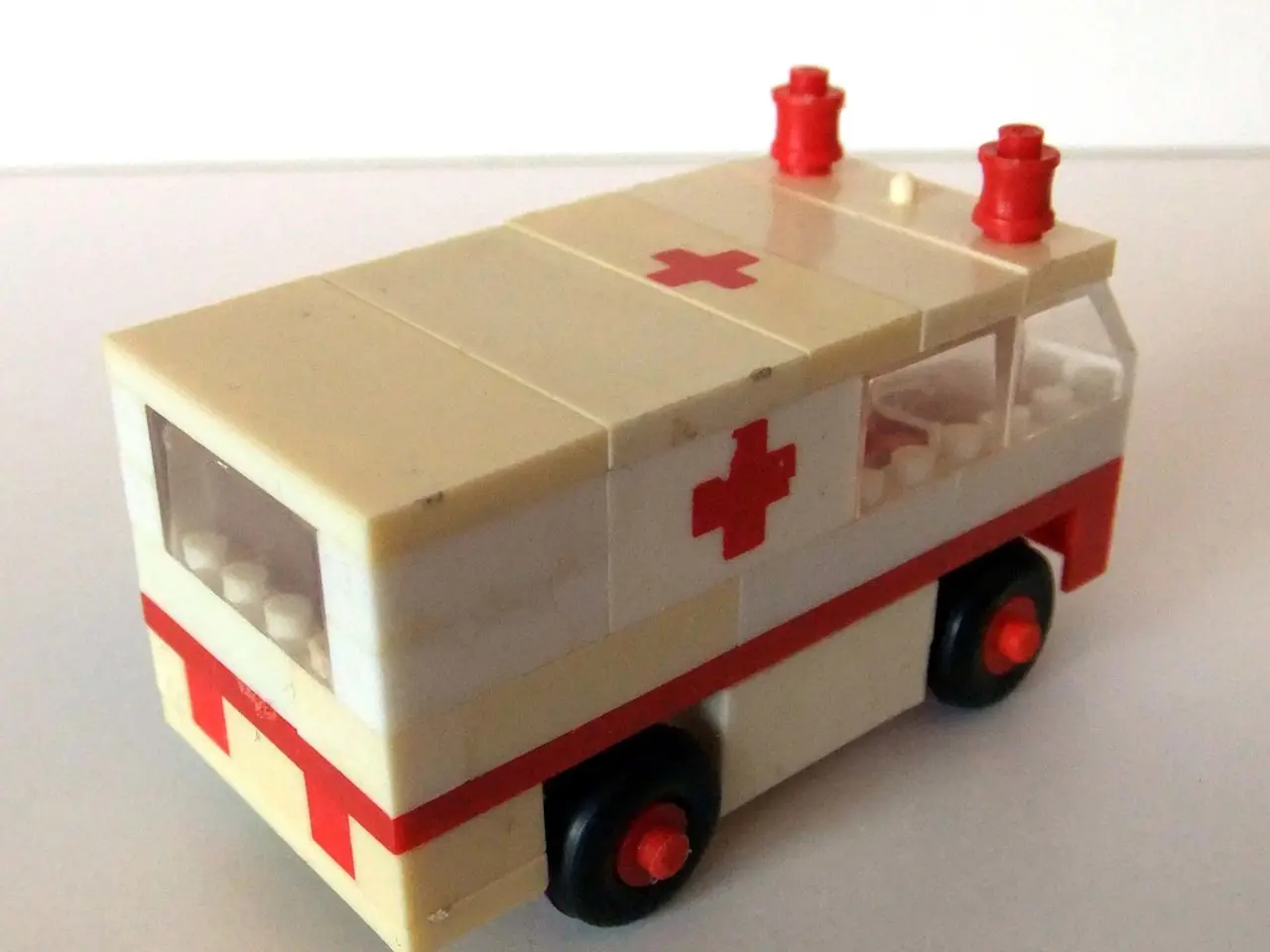Ghanaian Government to Maintain Supply Chain Stability amid USAID Interruptions via Zipline
In a groundbreaking move, the Government of Ghana has partnered with Zipline, the world's largest autonomous drone delivery network [1]. This partnership aims to transform the healthcare landscape, particularly in remote and hard-to-reach areas of the country.
Zipline's drones are now an integral part of Ghana's health supply chain, delivering a variety of essential medical supplies, including malaria medications, nutritional supplements, and vaccines [2]. This collaboration has seen a significant increase in deliveries by up to 50% over the past two months [2].
The drones, equipped with cutting-edge technology, provide "on-demand delivery," reducing wait times from days to hours or less [4]. This swift delivery is crucial during medical emergencies or supply shortages, ensuring that health workers receive critical items without delay.
Regional Medical Stores in Ghana now centralise stock with Zipline for rapid, on-demand dispatch, further enhancing the availability of medicines, vaccines, and medical products at the last mile [4]. This partnership ensures critical care reaches every corner of the nation, a point emphasised by Daniel Kwaku Merki, Head of Zipline Ghana [5].
The initial focus of Zipline's operations in Ghana is on the Northeast, Northern, and Eastern regions, areas that often face logistical challenges due to poor road infrastructure [6]. However, expansion talks are ongoing to make the service available nationwide [6].
The partnership between Ghana and Zipline operates on a flat monthly fee, ensuring more reach without additional cost [7]. This cost-effective approach is a testament to Ghana's commitment to building a robust health system, as stated by Daniel Kwaku Merki [5].
Comfort Addai Fofie, a staff midwife in the Northeast Region, has expressed appreciation for Zipline's timely support [6]. The drone delivery network has significantly helped address disruptions in USAID's health supply chain in Ghana by enabling rapid, reliable delivery of essential medical supplies and vaccines directly to remote or hard-to-reach health facilities [4].
This partnership between Ghana and Zipline is more than just a response to challenges; it's an example of Ghana transforming a challenging situation into an opportunity to build a more self-reliant and cost-effective health system, as stated by Merki [3]. The partnership underscores the importance and effectiveness of this drone delivery network in sustaining national health programs, even amidst disruptions [4].
In summary, Zipline's autonomous drones help USAID in Ghana by overcoming logistical hurdles, speeding delivery times, and sustaining the critical flow of health supplies to remote locations, thereby mitigating disruptions in the health supply chain [3][4]. This innovative approach to healthcare delivery is set to revolutionise the way essential medical supplies are delivered in Ghana, ensuring that no one is left behind in the pursuit of better health services.
References: 1. The Government of Ghana Partners with Zipline 2. Zipline Deliveries in Ghana Increase by 20-50% 3. Ghana Transforms Challenges into Opportunities with Zipline Partnership 4. Zipline's Drone Delivery Network Helps USAID in Ghana 5. Daniel Kwaku Merki, Head of Zipline Ghana, on the Partnership 6. Comfort Addai Fofie, a Staff Midwife in the Northeast Region, on Zipline's Support 7. Zipline Partnership Ensures More Reach without Additional Cost
- The integration of artificial intelligence in the drone technology used by Zipline has advanced health-and-wellness services, particularly in hard-to-reach areas, by facilitating the swift delivery of medical-conditions essentials.
- This partnership between Ghana and Zipline is not limited to the healthcare sector; it also opens avenues for the country's education-and-self-development and personal-growth, as the same technology could potentially be used to deliver educational materials and resources to remote regions.
- The success of this partnership between Ghana and Zipline could pave the way for similar collaborations in the finance and business sectors, possibly leading to the deployment of drone technology for the quick delivery of documents or financial services in remote areas.
- The drones used by Zipline are not solely for the delivery of medical supplies; they could potentially be used for the transportation of other goods, thereby boosting the local economy and contributing to the growth of business and technology sectors.
- The advantage of using drones for the delivery of essential supplies is not limited to medical-conditions; it could also apply to the timely delivery of health-and-wellness products, gadgets, and other items, leading to improved healthcare, lifestyle, and overall well-being.




